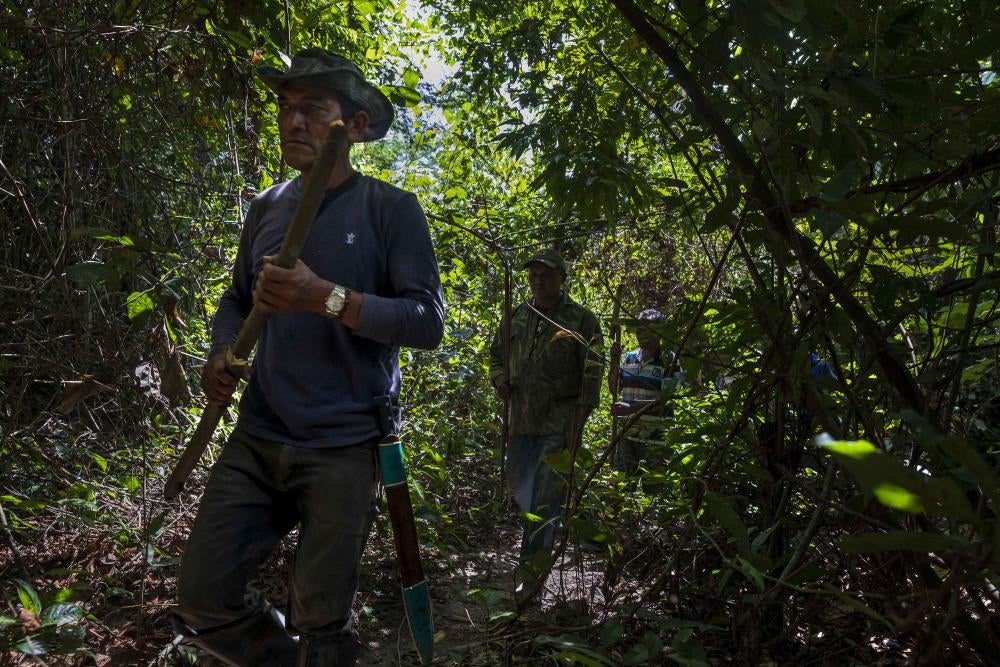 Franciel Souza Guajajara, then coordinator of the Wazayzar, or “keepers of the culture,” of Araribóia Indigenous Territory, in Maranhão State, leads a group of guardians on a foot patrol near the village of Lagoa Comprida in June 2018. The Wazayzar of the Tenetehara Indigenous people patrol the territory and report the illegal logging they encounter to authorities.
© 2018 Brent Stirton/Getty Images for Human Rights Watch
Franciel Souza Guajajara, then coordinator of the Wazayzar, or “keepers of the culture,” of Araribóia Indigenous Territory, in Maranhão State, leads a group of guardians on a foot patrol near the village of Lagoa Comprida in June 2018. The Wazayzar of the Tenetehara Indigenous people patrol the territory and report the illegal logging they encounter to authorities.
© 2018 Brent Stirton/Getty Images for Human Rights Watch
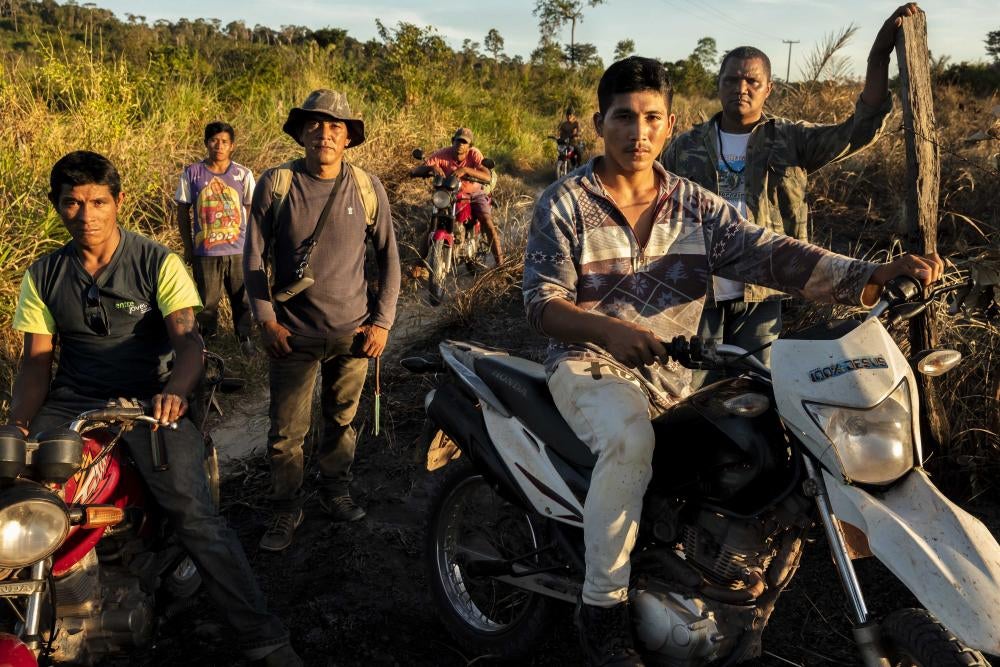 Members of the Wazayzar.
© 2018 Brent Stirton/Getty Images for Human Rights Watch
Members of the Wazayzar.
© 2018 Brent Stirton/Getty Images for Human Rights Watch
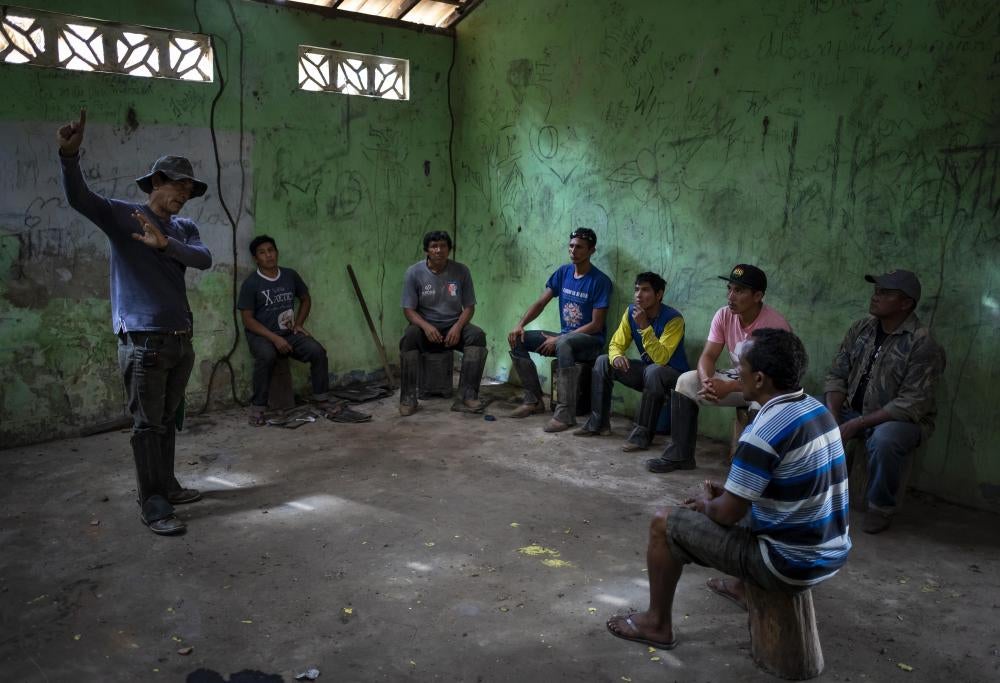 Franciel Souza Guajajara leads a meeting of the Wazayzar before setting out on patrol in the village of Lagoa Comprida in June 2018.
© 2018 Brent Stirton/Getty Images for Human Rights Watch
Franciel Souza Guajajara leads a meeting of the Wazayzar before setting out on patrol in the village of Lagoa Comprida in June 2018.
© 2018 Brent Stirton/Getty Images for Human Rights Watch
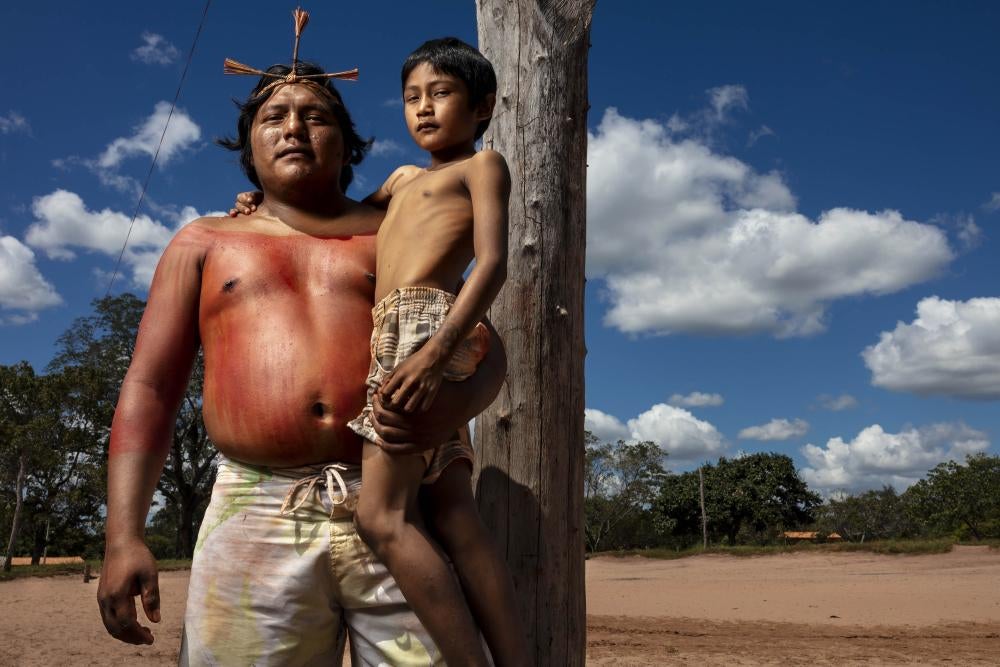 Eýy Cy, 31, holds his son in the main square of Governador village, where he is chief, in Governador Indigenous Territory in Maranhão State in June 2018. The Pyhcop Catiji people who live there have set up a group of “Forest Guardians,” who patrol the forest to detect illegal logging.
© 2018 Brent Stirton/Getty Images for Human Rights Watch
Eýy Cy, 31, holds his son in the main square of Governador village, where he is chief, in Governador Indigenous Territory in Maranhão State in June 2018. The Pyhcop Catiji people who live there have set up a group of “Forest Guardians,” who patrol the forest to detect illegal logging.
© 2018 Brent Stirton/Getty Images for Human Rights Watch
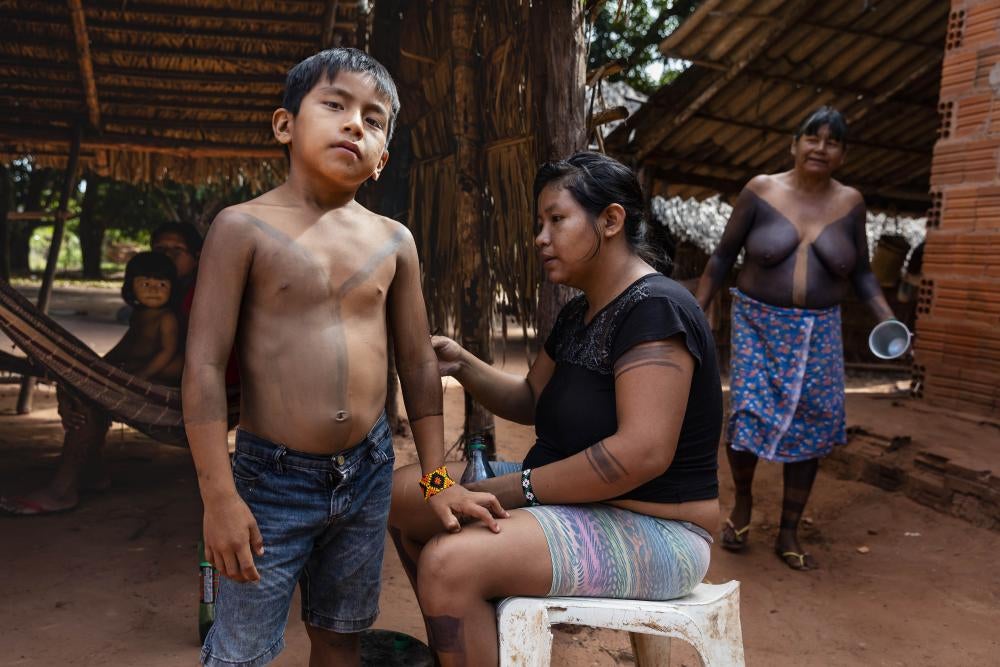 A Pyhcop Catiji woman uses paint extracted from the jenipapo fruit to draw traditional patterns on a boy´s skin. The Indigenous people of Governador Indigenous Territory use body paints for decoration and ceremonies.
© 2018 Brent Stirton/Getty Images for Human Rights Watch
A Pyhcop Catiji woman uses paint extracted from the jenipapo fruit to draw traditional patterns on a boy´s skin. The Indigenous people of Governador Indigenous Territory use body paints for decoration and ceremonies.
© 2018 Brent Stirton/Getty Images for Human Rights Watch
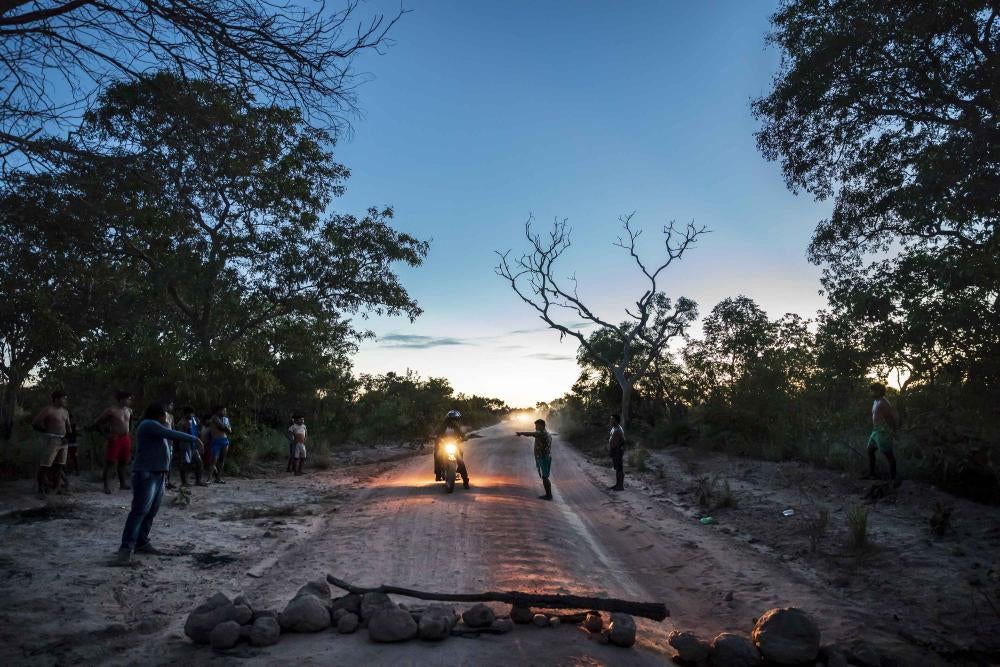 The Pyhcop Catiji Indigenous people set up a rudimentary road block to detect logging trucks carrying illegally-harvested timber from Governador and Araribóia Indigenous Territory, in Maranhão State, in June 2018.
© 2018 Brent Stirton/Getty Images for Human Rights Watch
The Pyhcop Catiji Indigenous people set up a rudimentary road block to detect logging trucks carrying illegally-harvested timber from Governador and Araribóia Indigenous Territory, in Maranhão State, in June 2018.
© 2018 Brent Stirton/Getty Images for Human Rights Watch
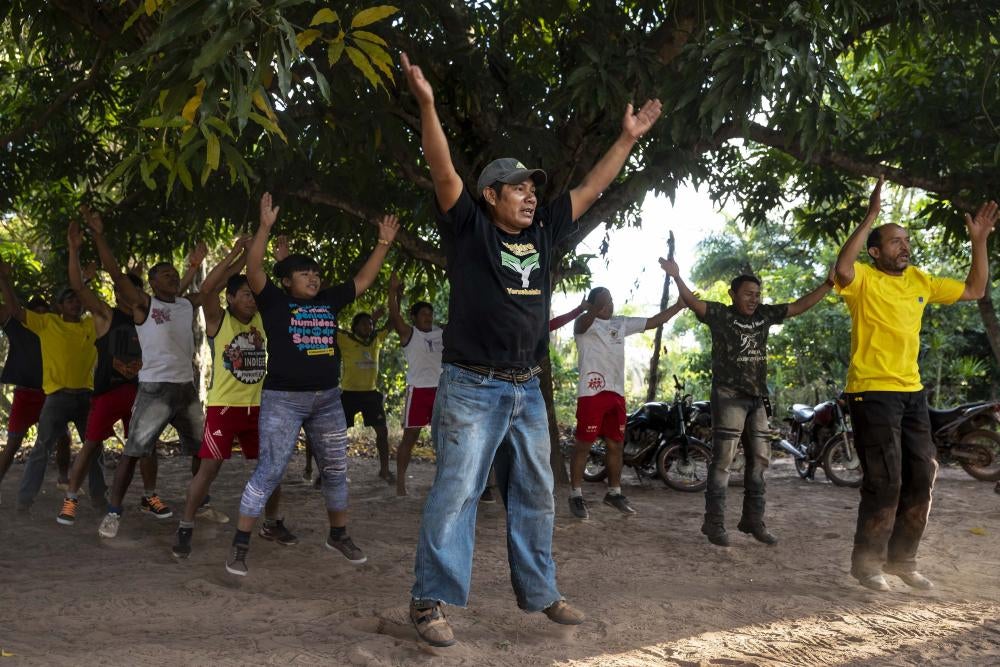 Pyhcop Catiji Indigenous people hired by IBAMA, Brazil´s main federal environmental agency, to prevent and fight forest fires perform exercises in Governador Indigenous Territory in June 2018.
© 2018 Brent Stirton/Getty Images for Human Rights Watch
Pyhcop Catiji Indigenous people hired by IBAMA, Brazil´s main federal environmental agency, to prevent and fight forest fires perform exercises in Governador Indigenous Territory in June 2018.
© 2018 Brent Stirton/Getty Images for Human Rights Watch
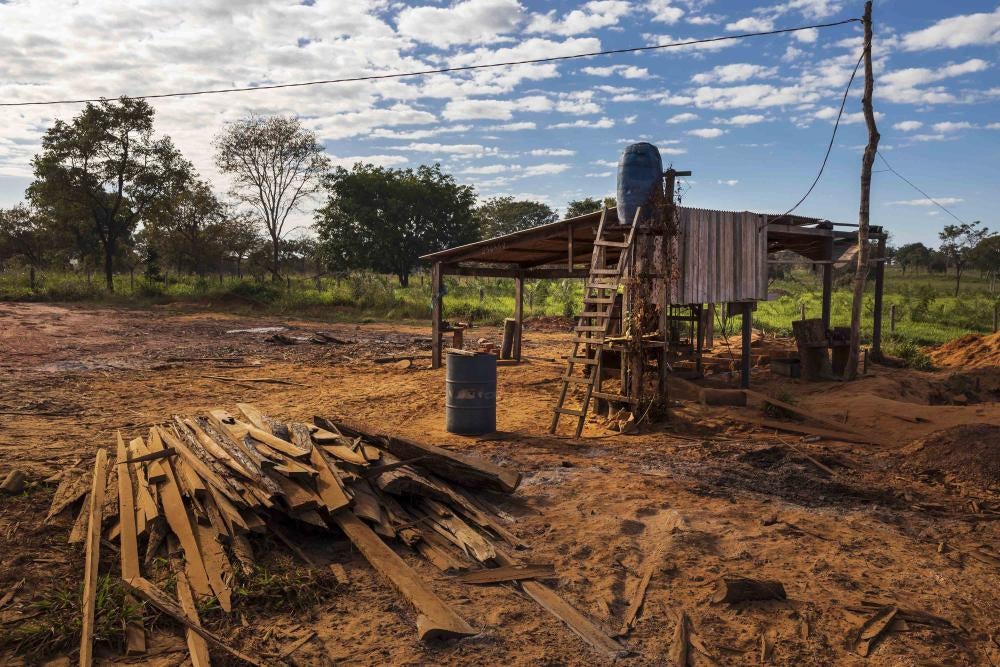 One of two illegal sawmills found by Human Rights Watch about five kilometers outside Governador Indigenous territory, in the outskirts of Amarante do Maranhão in June 2018. This sawmill was in the open, unobscured by any fences or trees, a few hundred meters from a main road, and hooked to the town´s power grid.
© 2018 Brent Stirton/Getty Images for Human Rights Watch
One of two illegal sawmills found by Human Rights Watch about five kilometers outside Governador Indigenous territory, in the outskirts of Amarante do Maranhão in June 2018. This sawmill was in the open, unobscured by any fences or trees, a few hundred meters from a main road, and hooked to the town´s power grid.
© 2018 Brent Stirton/Getty Images for Human Rights Watch
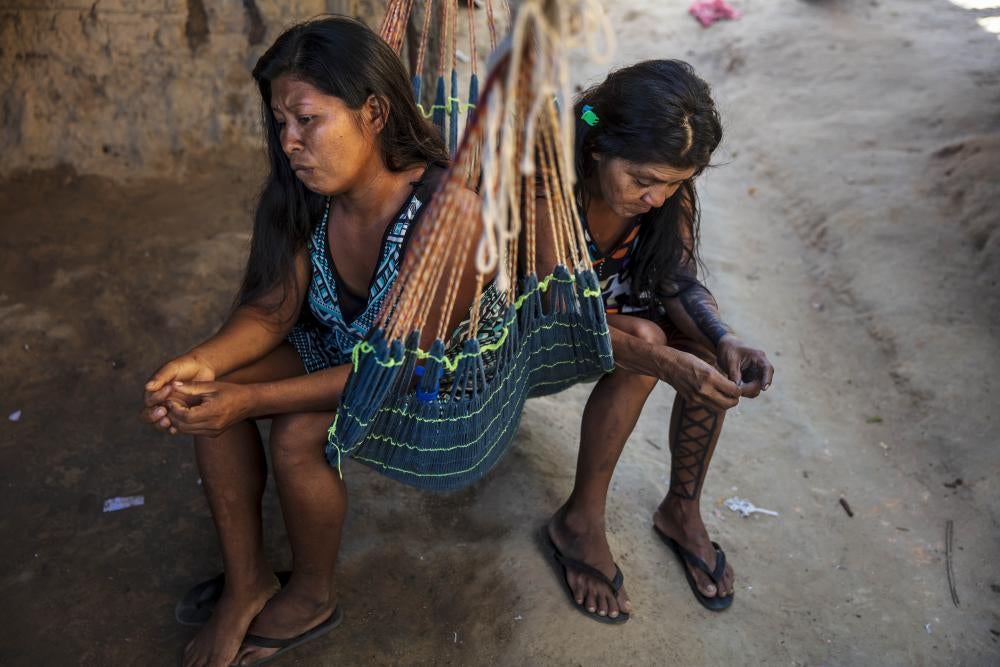 Jaciane Guajajara (left) and Graça Guajajara remember their father Tomé Guajajara, who was killed in 2007 by loggers who invaded their village to recover a logging truck apprehended by Indigenous people inside the Araribóia Indigenous territory. Twelve years on, there has been no trial.
© 2018 Brent Stirton/Getty Images for Human Rights Watch
Jaciane Guajajara (left) and Graça Guajajara remember their father Tomé Guajajara, who was killed in 2007 by loggers who invaded their village to recover a logging truck apprehended by Indigenous people inside the Araribóia Indigenous territory. Twelve years on, there has been no trial.
© 2018 Brent Stirton/Getty Images for Human Rights Watch
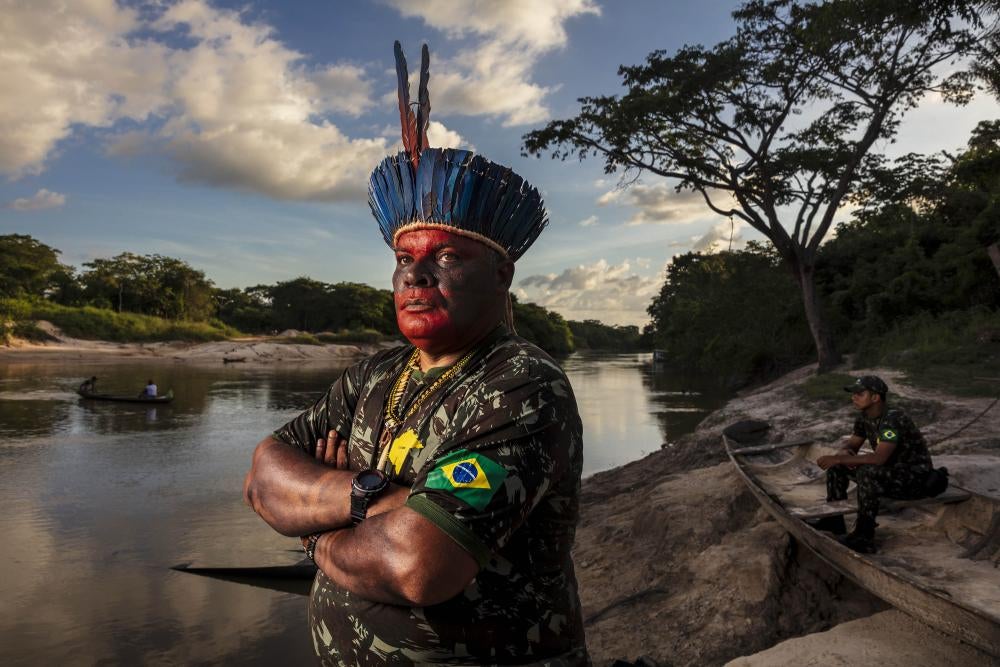 Cláudio José da Silva, the coordinator of the “Forest Guardians” of Caru Indigenous Territory, Maranhão State, at the bank of the Pindaré river in June 2018. The Guardians are Tenetehara Indigenous people who patrol the land to detect illegal logging and report it to the authorities.
© 2018 Brent Stirton/Getty Images for Human Rights Watch
Cláudio José da Silva, the coordinator of the “Forest Guardians” of Caru Indigenous Territory, Maranhão State, at the bank of the Pindaré river in June 2018. The Guardians are Tenetehara Indigenous people who patrol the land to detect illegal logging and report it to the authorities.
© 2018 Brent Stirton/Getty Images for Human Rights Watch
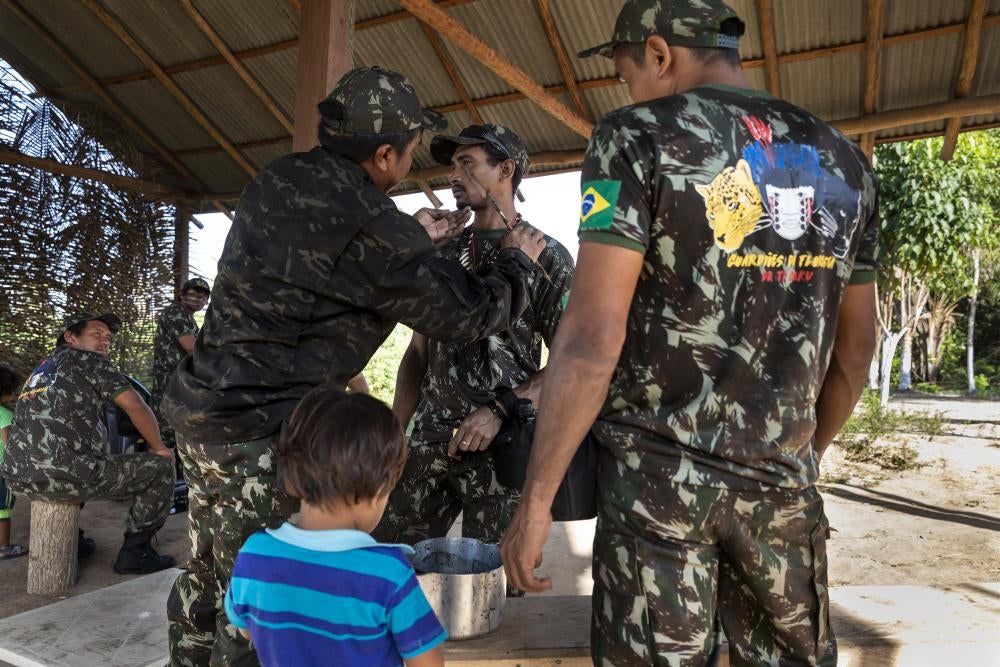 The “Forest Guardians” of Caru Indigenous Territory, Maranhão State, prepare for a patrol in June 2018. The Guardians are Tenetehara Indigenous people who patrol the land to detect illegal logging and report it to the authorities.
© 2018 Brent Stirton/Getty Images for Human Rights Watch
The “Forest Guardians” of Caru Indigenous Territory, Maranhão State, prepare for a patrol in June 2018. The Guardians are Tenetehara Indigenous people who patrol the land to detect illegal logging and report it to the authorities.
© 2018 Brent Stirton/Getty Images for Human Rights Watch
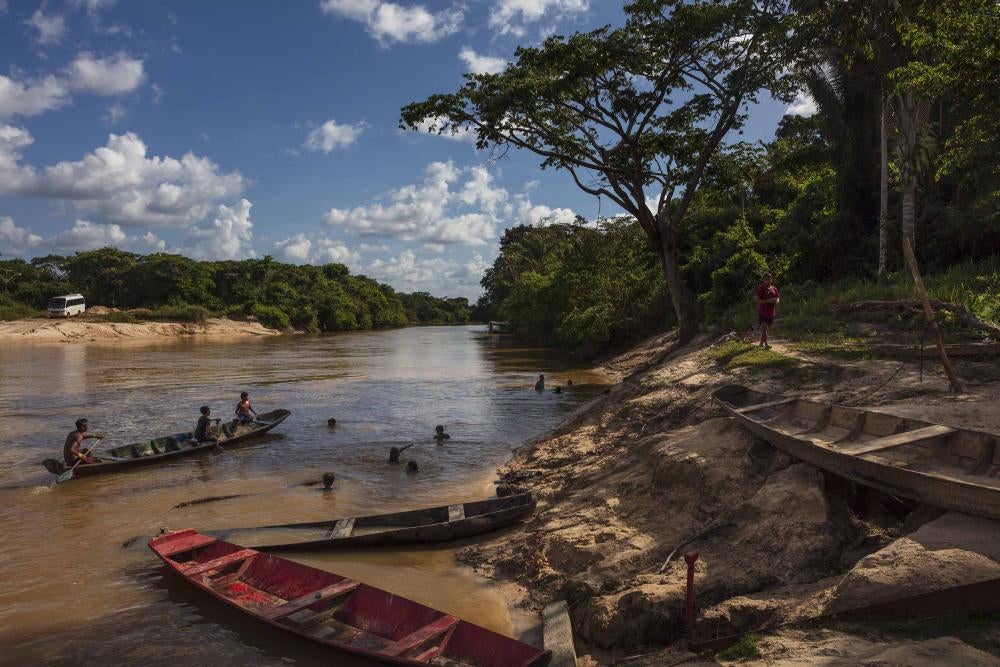 Scenes of the Pindaré river, which marks the limit between the mostly deforested areas around the Caru Indigenous Territory, in Maranhão, and the lush rainforest inside, in June 2018. Loggers cross the river into the territory to extract timber illegally, Indigenous people say.
© 2018 Brent Stirton/Getty Images for Human Rights Watch
Scenes of the Pindaré river, which marks the limit between the mostly deforested areas around the Caru Indigenous Territory, in Maranhão, and the lush rainforest inside, in June 2018. Loggers cross the river into the territory to extract timber illegally, Indigenous people say.
© 2018 Brent Stirton/Getty Images for Human Rights Watch
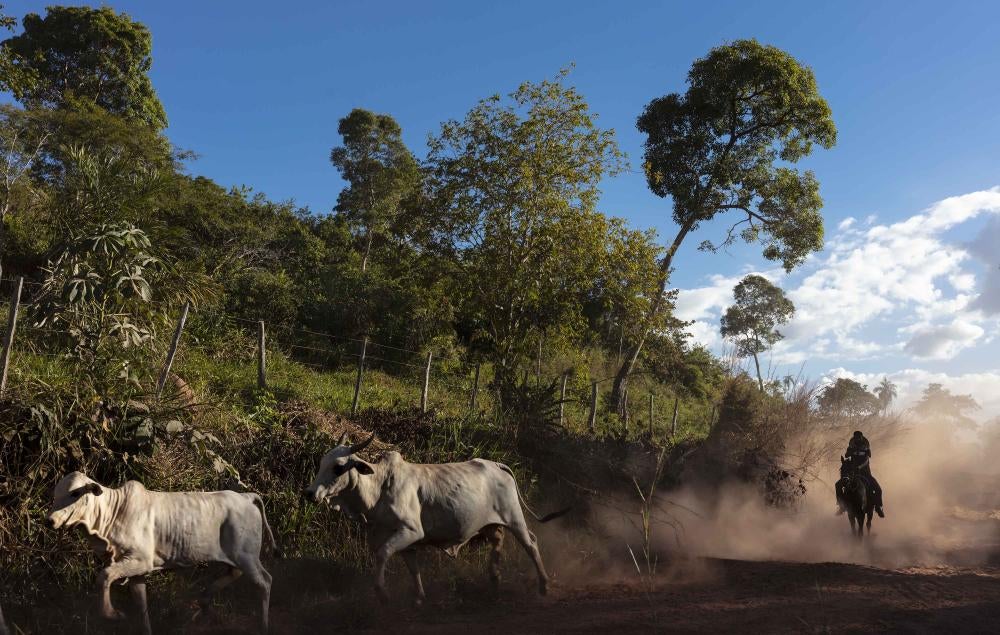 Cattle near Governador Indigenous territory, Maranhão State, in June 2018. The Pyhcop Catiji Indigenous people protect a remnant of Amazon rainforest surrounded by cattle ranches, mostly devoid of trees.
© 2018 Brent Stirton/Getty Images for Human Rights Watch
Cattle near Governador Indigenous territory, Maranhão State, in June 2018. The Pyhcop Catiji Indigenous people protect a remnant of Amazon rainforest surrounded by cattle ranches, mostly devoid of trees.
© 2018 Brent Stirton/Getty Images for Human Rights Watch